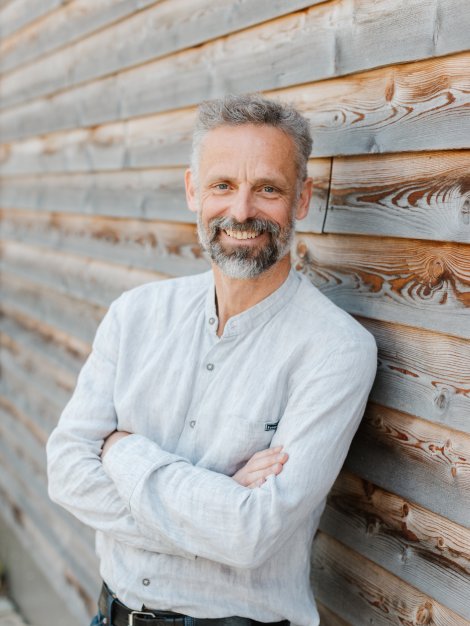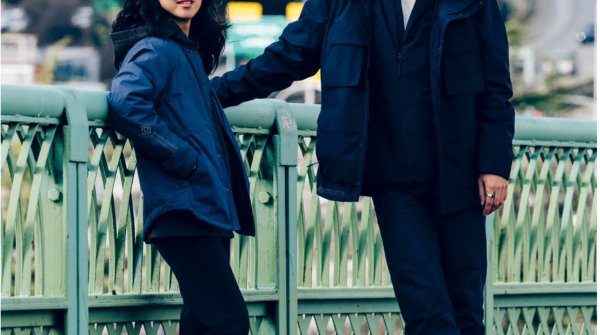Christian Schneidermeier has been Director of the European Outdoor Group (EOG) since March 2025, having previously spent 13 years as CEO of the mountain sports brand Ortovox. With the decision to pause the OutDoor trade fair, which was taken jointly with Messe München, he wants to gain time to set the right course for a new start. A break opens up more opportunities than risks, he said at the time. How has this strategy paid off? The concept for the next OutDoor is not yet finalized, but some important points are already clear. These include the strong desire for a trade fair or platform. We spoke with Christian Schneidermeier about the EOG's position and initial plans for the trade fair's reorientation.
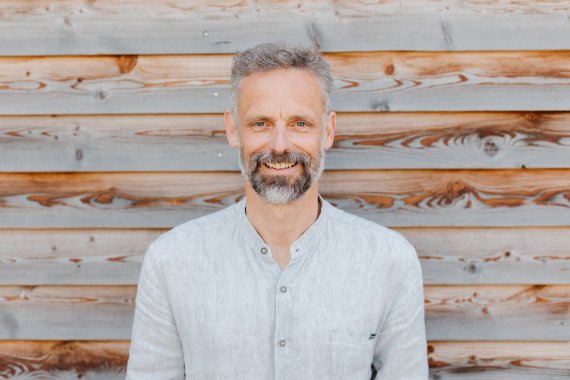
Schneidermeier: It's not bad, but it could be better. We had hoped that things would have improved by summer, but the upturn we were expecting—and which will certainly come—has not yet fully materialised. There are signs of positive change, such as success stories from individual brands, but these are not yet evident across the entire industry. Overall, however, we are all convinced that things will pick up again. The only question is when this will be noticeable to everyone.
It varies greatly; there is no uniform picture. Some brands are successful in certain segments, while others are not. It is impossible to paint a uniform picture at the moment.
It is also difficult to provide a clear answer because we currently have no reliable tool for mapping and analysing market developments. That's why we're working hard on the Outdoor Market Intelligence Service (OMIS) project, which will provide us with monthly sell-out figures for individual markets. However, we need the support of brands and retailers willing to provide us with their sales figures. The tool will be available for the DACH region from October.
Of course, we are always dependent on the weather in our industry, which has not been ideal in recent summers.
We simply have to see how we can all work together to regain the energy we all want for positive market conditions.
My answer to this question is twofold: On the one hand, there was a great deal of understanding for the decision taken jointly by Messe München and the EOG. On the other hand, there were also voices saying that we need a trade fair. That's exactly the reaction I wanted to provoke. And by saying that we were pausing this trade fair, some market participants became more aware again of how valuable such a trade fair is. That has been lost a little in recent years. Things that are taken for granted are not appreciated. You usually only recognize value when it is suddenly no longer there. I currently have the feeling that some people have realized that if we don’t have a trade fair, something is missing and with that comes the urgent wish that this really does remain just a one-year pause.
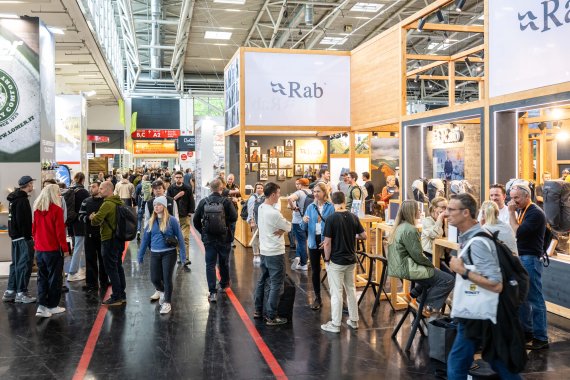
The EOG's position is very clear: we strongly advocate an industry platform. I'm not sure if 'trade fair' is the right term, but in any case, we support a platform where the industry can showcase itself, and where market participants can exchange ideas, particularly brands and retailers. This must be at the heart of every trade fair. As an association, we stand behind that, and I stand behind it personally.
As an association, we are naturally the driving force behind the trade fair. We see ourselves as the owner of the trade fair. That's why we try to find the best conditions for it in order to create an ideal environment for all market participants. Especially for our members, of course. After all, that is one of our core tasks as an association: we see ourselves not only as the voice of the outdoor industry, but also as a platform for the outdoor industry, supporting profitable business with our activities.
There are many different aspects that all contribute to the topic of trade fairs. Since taking on my new role at the EOG, I have become fully aware of just how complex the topic really is. From a brand perspective, it can sometimes be relatively easy to say what a trade fair should be like. However, this is just one perspective; many more aspects must be considered.
The framework conditions have fundamentally changed in recent years, starting with the Coronavirus pandemic, which has naturally given rise to new business processes. However, that is certainly not the only factor: the industry has also evolved and diversified. Operational and sales processes, schedules and workflows are all changing. There's a lot of movement in the business. Today, there are many different interests within the industry, as well as numerous opportunities to come together, exchange ideas and showcase oneself. I think there is now an oversupply of formats.
Of course, the economic situation also affects the scale of a trade fair presence - or whether it takes place at all. On the retail side, a key factor was naturally the decline in brand participation, which made the event less attractive for specialist retailers.
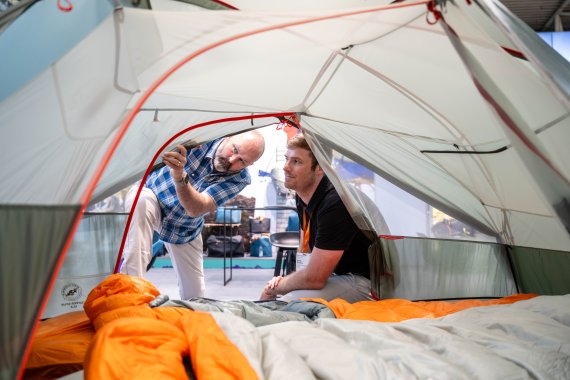
It's still too early to reveal details of the next OutDoor show, as we're currently working hard to finalise the new format for next year.
However, we have, of course, listened carefully to what both sides want. We also conducted a survey of European specialist retailers regarding the OutDoor trade fair, which provided us with valuable insights.
Personal Exchange in Focus: Discover the ISPO Retail Club
The ISPO Retail Club connects you directly with the industry through networking, expertise, and exclusive benefits such as VIP access to ISPO 2025, whitepapers, webinars, and targeted matchmaking.
Believe it or not, personal contact remains the main focus. This means the platform should facilitate personal interaction between brands and retailers. There is also a demand to focus more on the core task of exploring the potential for cooperation between retailers and brands through personal conversations. Anything else is just a distraction. We are therefore working on an effective event that is possibly reduced to just two days, to minimise effort for both parties.
The timing of the trade fair must also be right, providing an overview of the entire market well before concrete sales and communication work orders start. Such a platform should be seen as the start of the season. We want to achieve this by next year.
The product will once again take center stage. It's not enough to show up at the trade fair with just a few products. Visitors need to be able to see the whole portfolio. We also need to consider how to make the topic more emotional and present it in a more emotional way.
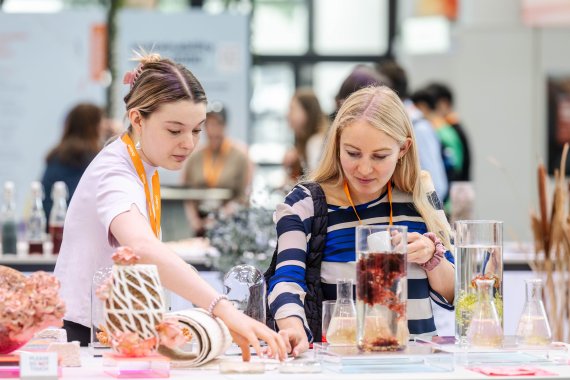
Trade shows are an important topic for us. We support them as a tool for doing business in the best possible way. That's why we support ISPO.. The EOG will have a booth showcasing the outdoor industry, and ISPO offers a concentrated opportunity for exchange between businesses and industries. We support the trade fair in this endeavor
Want to be the first to find out the latest insights from the sports industry?
Then subscribe to our free newsletter now and always be one step ahead.
It is important to me to say that the future of trade shows does not depend on the organizer, but on participation. That is why I would like to make a plea to the entire industry that we are all called upon to ensure the future of trade shows as an important tool for conducting our business in a sensible manner. And these trade shows or platforms are not just about sales. They are also about presenting brands and motivating skilled workers to join the outdoor industry. They are about presenting the industry as a whole to politicians and society. To do this, we need a strong trade fair.
However, this requires us as an industry to work together better again and put our egos aside. It won't work if everyone only thinks of themselves and no one thinks of the community anymore. Because in the end, we are not our biggest competitors; as an industry, we compete against other industries such as automotive, travel, events, computer games – whatever. Those are our real competitors. We are all in the same boat, so we need to position ourselves as best we can. And that requires platforms. That is why I am calling on all market participants, both on the retail side and on the industry side, to support this tool for the benefit of the entire industry and for the success of each individual.

 Sports BusinessSki Mountaineering Goes Olympic: What Milano-Cortina 2026 Means
Sports BusinessSki Mountaineering Goes Olympic: What Milano-Cortina 2026 Means
- ISPO awards
- Mountain sports
- Bike
- Design
- Retail
- Fitness
- Health
- ISPO Job Market
- ISPO Munich
- ISPO Shanghai
- Running
- Brands
- Sustainability
- Olympia
- OutDoor
- Promotion
- Sports Business
- ISPO Textrends
- Triathlon
- Water sports
- Winter sports
- eSports
- SportsTech
- OutDoor by ISPO
- Heroes
- Transformation
- Sport Fashion
- Urban Culture
- Challenges of a CEO
- Trade fairs
- Sports
- Find the Balance
- Product reviews
- Newsletter Exclusive Area
- Magazine
